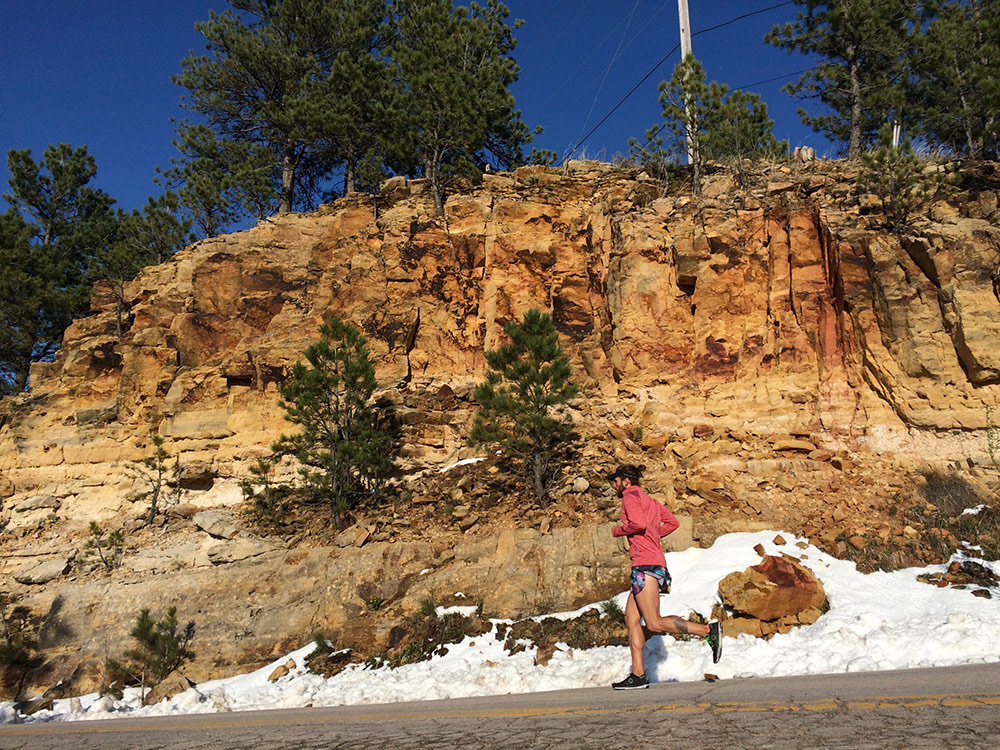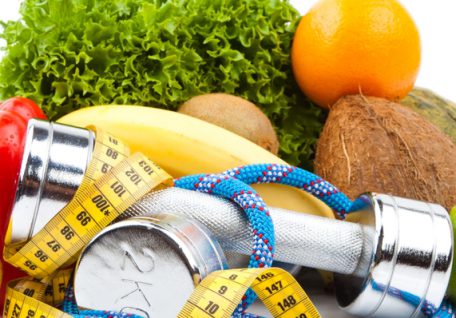The physiological response of the body to heat
When you exercise strenuously in even moderate heat, your body’s core temperature rises. In response, your blood flow is rerouted so more of it goes to your skin surface to help your body let off your internal heat, and you break a sweat (it is the evaporation of sweat into the atmosphere that causes heat to be lost from your body, thereby providing a cooling effect).
The redirection of blood flow to the skin makes less oxygen available to your muscles and hence your heart beats faster and pumps harder to compensate for the loss of oxygen going to your muscles. This results in a higher heart rate for your usual set training pace, and you tend not to maintain the same pace that you would on a cooler day.
So, if you wear a heart rate monitor, don’t be too bothered by a higher heart rate during a workout that might feel slower than usual. When training in the heat, it is better to train or run by feel or Perceived Exertion (http://ow.ly/zhQz305tdBU) level rather than pace or time.
The major types of heat illness
Table 1. Types of heat illness
| Illness
|
Cause
|
Symptoms
|
| Heat rash | Inflammation of the sweat glands.
|
Erythematous papular rash. Pruritis. Secondary infection. |
| Heat cramps | Loss of salt in sweat. | Sharp stabbing pain or spasm especially in the leg muscles, but also in the diaphragm where it can cause a painful stitch |
| Heat exhaustion | Exposure to high temperatures and not drinking enough fluids so that there is a significant loss of electrolytes and the body is unable to dissipate the heat generated during exercise. | Sudden decreased performance and exhaustion. Heavy sweating. Pale complexion. Rapid heartbeat (tachycardia). Muscle cramps. Dizziness. Headache. Nausea or vomiting. Fainting. Dry tongue and thirst. |
| Heat stroke
medical emergency |
A rise in core temperature so that the body’s temperature regulation fails leading to widespread organ injury. | Body temperature 40 C or higher. Dry skin (no sweating). Rapid heartbeat. Severe headache. Dizziness. Nausea. Confusion. Fainting. Arrhythmia. Convulsions. Death. |
| Exertional heat stroke | A rise in core temperature precipitated by intense or prolonged exercise in hot weather. | As for heat stroke plus: Break down of muscle tissue (rhabdomyolysis). Renal failure. |
What should you consider when exercising over summer?
Besides hydration, there are several factors affecting your body’s ability to regulate its core temperature in terms of how much heat your body (a) generates and (b) dissipates.
Chronic medical conditions
Exacerbation of chronic illness contributes to the majority of heat-related morbidity and mortality. Some illnesses affect the ability of peripheral vasodilation – the blood vessels in the skin may not be able to enlarge enough for heat to be released through the skin, making it difficult to control body temperature.
Sometimes the heart muscle may be too weak to respond to the demands of heat, and so the heart has less reserve capacity to transport heat from the body (and is more likely to become overworked during periods of heat stress).
You should take special care when exercising in hot weather if you have:
- Heart disease
- High blood pressure
- Diabetes
- Kidney disease
- Cancer
Medications
Several commonly prescribed medications can interfere with the body’s heat regulation and so increase the risk of heat-related illness. You should therefore take special care when exercising in the heat and modify your training appropriately. If you intend to follow a regular exercise program, you may need to consult your doctor and have your medicine doses adjusted in the summer months.
Some physiological effects of medications to watch out for in summer are shown in Table 2.
Weather
It’s a good idea to check the humidity, temperature, cloud cover and wind before going out to exercise. Elements of the weather will impact the conditions for exercising. For example, sweating is the body’s most important cooling mechanism during exercise. If the humidity is high, sweat cannot evaporate to produce a cooling effect.
Clothing
Wear light, breathable fabrics. While you may wear a cap for sun protection, be mindful that you dissipate a significant amount of heat through your head and so removing it every now and then might be a useful strategy for cooling down in hot weather.
Table 2. Physiological effects of medications
| Physiological effect
|
Type of medication | Physiological effect | Type of medication |
| Disturb sweating | Anticholinergics Beta-blockers Antihistamines Phenothiazines Vasoconstrictors |
Reduce renal function | NSAIDs Sulphonamides Indinavir Cyclosporin |
| Upset thermoregulation | Antipsychotics Neuroleptics Serotoninergic agonists Stimulants (amphetamine, cocaine) Throxin |
Aggravate heat illness by worsening hypotension | Vasodilators (nitrates, calcium channel blockers) Anti-hypertensives |
| Decrease thirst | Butyrophenone ACE inhibitors |
Dehydration affects drug levels in the body (risk of toxicity) | Digoxin Lithium Warfarin Antiepileptics Biguanides (Metformin) Statins |
| Dehydration or electrolyte imbalance | Diuretics Drugs causing diarrhoea/vomiting (antibiotics, codeine) Alcohol |
Alter state of alertness | Alcohol Benzodiazepine Narcotics |
*This is not a comprehensive list and is intended only as a guide. You should always consult your doctor first for advice concerning your own medication regime.
**Adapted from NSW Health Information for Health Professionals (http://ow.ly/5r1g305td4q)
Individual physical form
Be aware of your own health status and physical condition when exercising in the heat. Modify your training appropriately and moderate your exercise intensity, as the faster you run, the more heat you will generate. It is wise to simply slow down in warmer weather and adjust your racing or training pace for the heat.
Water consumption
Stay well hydrated but be careful not to overhydrate. Drinking too much fluid can lead to hyponatremia, which is when sodium in the blood becomes too diluted. There have been occasions when athletes have tried too hard to prevent dehydration by consuming too much water even in hot weather, with dire consequences.
Conclusion
If you stay mindful of the factors which can impact your performance in the heat, and listen to your body and adjust your intensity of exercise appropriately, it is possible to improve your heat acclimation and conditioning over time without pushing yourself too hard. Enjoy summer!
Author: Kara Gilbert – Kara is an active sportsperson across triathlon, athletics and recreational cycling and is currently President of Glenhuntly Athletics Club. Kate is also a medical and health expert who regularly commentates on a range of sport health matters for recreational and professional athletes.






